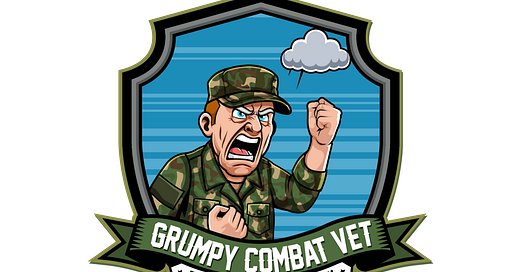Howdy!
The last seven days have been. . . eventful. I went out into the country, finished my first draft of my memoirs, and went halfway through the first round of edits. More work needs to be done on that front, for sure. However, we’re getting closer.
I hope you’ve listened to our latest episode of Shoulder to Shoulder. It was an incredible episode and…
Keep reading with a 7-day free trial
Subscribe to Grumpy Combat Veteran to keep reading this post and get 7 days of free access to the full post archives.


